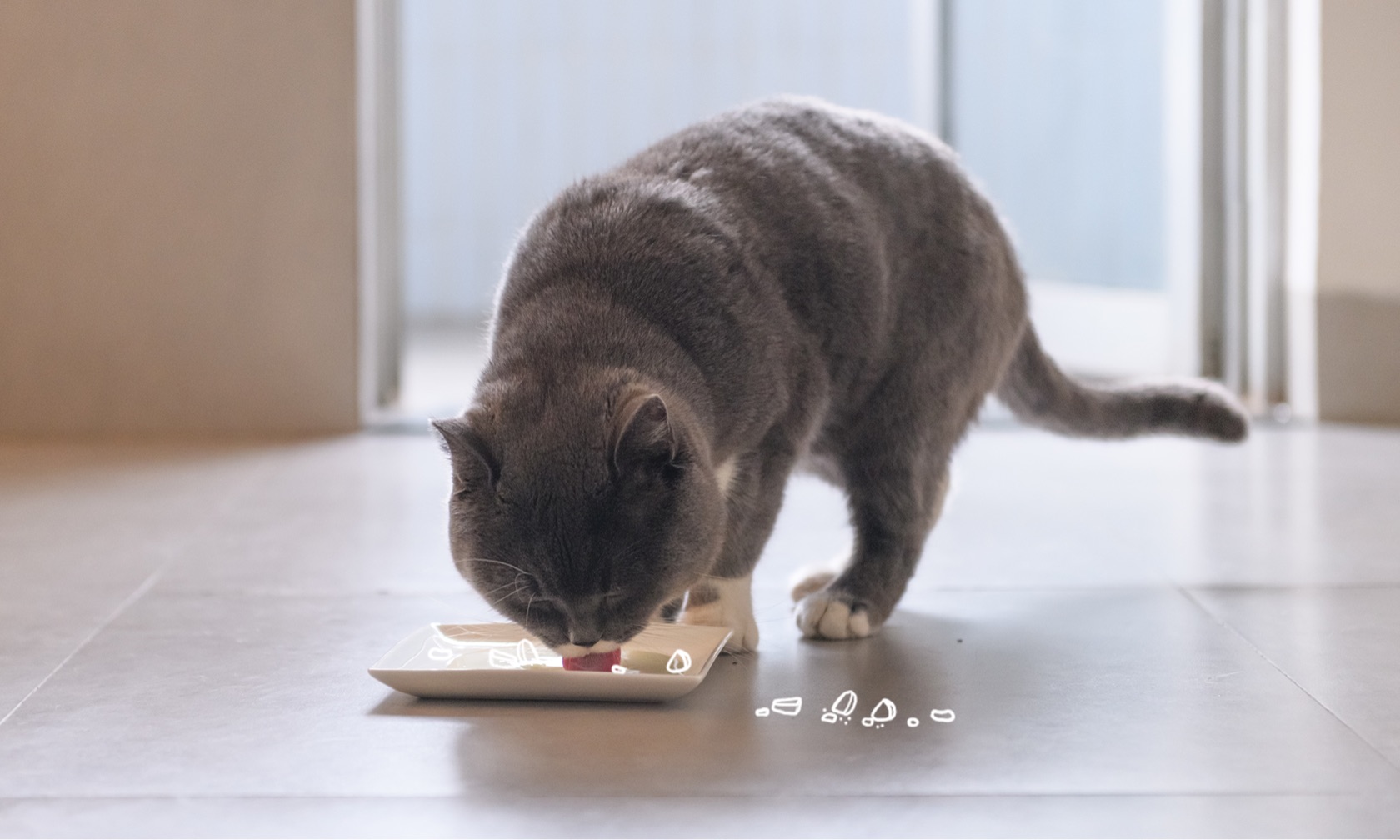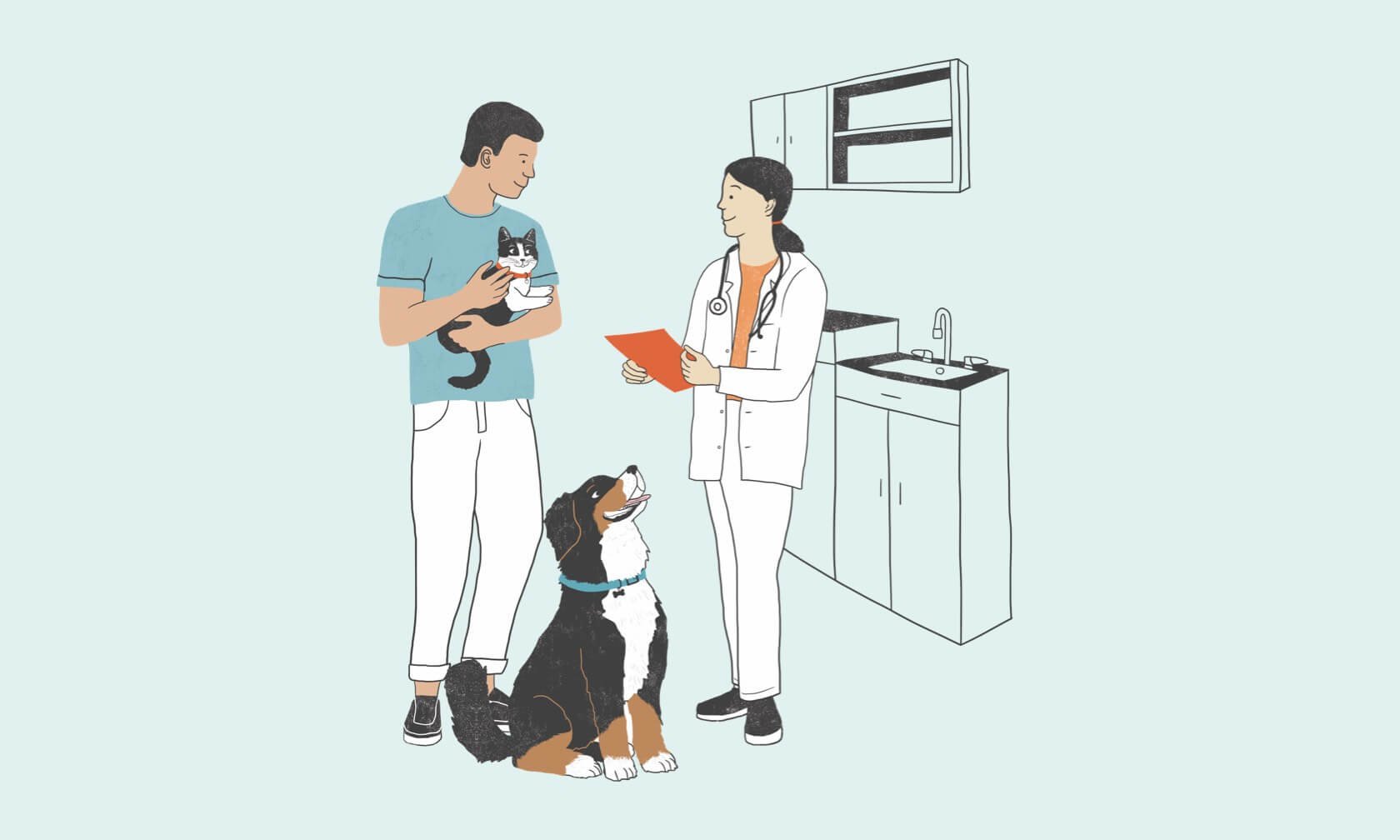Cats can get upset stomachs from for a variety of sources, ranging from trying a new medication to eating their food too fast. If you notice recurring signs like vomiting, gas, or diarrhea, (and have already ruled out any serious medical conditions with your veterinarian), your cat may just have a sensitive stomach. Here are some tips and tricks to soothe your cat’s sensitive stomach.
Keep Track of What They’ve Been Eating
If you just brought home your new cat, find out what food they were being fed at their shelter or rescue, for how long, and if they enjoyed it. You should also ask whether your cat was “free fed” or “meal fed,” which means if the food was left out all day, or was set out at specific times, respectively.
If you’ve had your cat for a while now, check in with any other members of the household (or cat sitters) to see if they made any changes to your cat’s diet.
If You Change Their Food, Do It Gradually
Even if you want to mix up your cat’s diet, it’s still best to continue feeding the same food as the shelter for the first 1–2 weeks in your home. Of course, if your cat doesn’t like it, or is having stomach issues, then you can start changing the diet right away.

For your cat you’ve had for a while, it’s ideal to transition their food over 10–14 days. Increase the percentage of new food by 20–25% while decreasing the old food by the same amount every 3–4 days.
Ask for a Veterinarian’s Recommendation
Check with your veterinarian at your next visit and ask if the new diet your cat is on is okay for them to eat. If it isn’t, ask for a recommendation, or ask them for their thoughts on the brands and varieties that you’re considering.
Mix With Rice for a Quicker Transition
If you need to transition your cat’s diet more quickly, still do the 20–25% increases in the new diet every 3–4 days — just ditch a proportion of the original diet and sub in some boiled white rice. Consider also adding a veterinary/feline probiotic to their meals, too.
Don’t Feed Table Scraps or Leftovers
Many human foods are not suited for cats and can cause stomach upset particularly for a cat with a sensitive stomach. Additionally, feeding them table scraps encourages begging, will be a much more difficult habit to break later, and makes them less likely to eat their proper food. Feeding table scraps can also lead to overfeeding your cat without you realizing it.
Signs That It May Be More Than the Diet
If you see any of these signs, do not wait to contact your veterinarian because they can be signs of a more serious condition. Cats are masters at hiding illness—the ‘wait and see’ method can be dangerous.
- Blood in the stool
- Persistent loose stools
- Changes in behavior, appetite or thirst
- Darker than usual stools (can be a sign of blood)
- Vomiting
- Defecating outside the box
- Straining or vocalizing in the litterbox
- Not producing urine or feces in the litterbox
ZPC-00178R2



